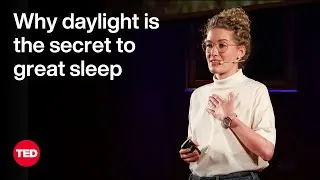How to Use Formal and Informal English - English Speaking and Writing Fluency
怎樣使用正式和非正式的英文 — 英文口說和英文書寫流利
662,083 views ・ 2017-08-04
請雙擊下方英文字幕播放視頻。
00:01
Greetings!
0
1969
1301
親切的問候!
00:03
My name is Gina Mares, and I would like to
take this opportunity to welcome you to this
1
3270
6020
我是Gina Mares,我想借
此機會歡迎您到
00:09
Oxford Online English video lesson.
2
9290
4210
Oxford Online English 線上補習課程。
00:13
Hello!
3
13500
1660
您好!
00:15
My name’s Gina.
4
15160
1840
我是Gina。
00:17
Welcome to the class.
5
17000
1000
歡迎來到線上教室。
00:18
Hey guys!
6
18000
1410
嗨,大家好!
00:19
Gina here.
7
19410
1439
我是Gina。
00:20
Let’s get started!
8
20849
2611
我們開始吧!
00:23
What’s going on here?
9
23460
3350
這裡發生了什麼事情?
00:26
Why am I welcoming you three times?
10
26810
2780
為什麼我要歡迎您三次?
00:29
In this lesson, you can learn about formal
and informal English.
11
29590
6780
在本節課裡,您會學習英文正式用語
和非正式用語。
00:36
You’ll learn how to recognise and use formal
and informal styles in your spoken and written
12
36370
8270
您會學到怎麼在您的英文口說和
書寫裡辨認和使用正式
00:44
English.
13
44640
5920
和非正式的形式。
00:50
Look at three sentences:
14
50560
2080
看三個例句:
00:52
Could I disturb you for a minute?
15
52640
3320
Could I disturb you for a minute?
00:55
Can I ask you something?
16
55960
3260
Can I ask you something?
00:59
You got a sec?
17
59220
2700
You got a sec?
01:01
All of these sentences have the same basic
meaning—I want to talk to you and ask you
18
61920
6230
所有這些例句有相同的基礎意思
—— 我想和您談談,
01:08
about something.
19
68150
1500
問您一些事情。
01:09
However, the tone is different.
20
69650
3500
然而,語氣是不同的。
01:13
Can you see how?
21
73150
3130
您能看出來是怎樣嗎?
01:16
These three sentences show three levels of
formality.
22
76280
4120
這三個例句顯示出
正式形式的三個等級。
01:20
The first sentence is formal; it shows politeness,
respect and distance.
23
80400
7460
首句是正式的;它顯示出禮貌、
尊重對方以及保持距離。
01:27
The second sentence is neutral; it does not
have a formal or an informal tone.
24
87860
7810
第二句是中性的,它沒有一個
正式或非正式的語氣。
01:35
The third sentence is informal; it shows that
you and the person you are speaking to are
25
95670
8070
第三句是非正式的;它顯示您和
正在與您交談的那個人彼此之間
01:43
familiar with each other, and you don't need
to make an effort to be polite or respectful.
26
103740
8790
很熟悉,您不需要去製造
一個禮貌或尊重的效果。
01:52
Actually, there are more than three levels
of formality.
27
112530
5290
實際上,有超過三種以上的正式形式等級。
01:57
For example:
28
117820
2339
例如:
02:00
Might I ask you something?
29
120159
1731
Might I ask you something?
02:01
May I take a moment of your time?
30
121890
4339
May I take a moment of your time?
02:06
Could I disturb you for a minute?
31
126229
4541
Could I disturb you for a minute?
02:10
These sentences are all formal.
32
130770
3020
這些句子都是正式的。
02:13
The first is extremely formal.
33
133790
3610
首句是極其正式的。
02:17
It’s probably too formal to use in most
situations.
34
137400
5690
那在大部分場合裡使用有
可能是太正式了。
02:23
The other two are both formal; the second
is probably more formal than the third.
35
143090
7100
其他兩句是正式的;第二句有可能
比第三句更正式一些。
02:30
Why ‘probably’?
36
150190
2190
為什麼是“probably”?
02:32
Formality isn’t absolute.
37
152380
1710
正式形式不是絕對的。
02:34
It also depends on context and intonation,
so it’s not just about the words you use.
38
154090
11050
它也取決於上下文和標點符號,所以
那不只是與您使用的單字有關。
02:45
So, there are many levels of formality.
39
165140
3630
所以,有很多正式形式的等級。
02:48
However, when you speak or write in English,
it’s useful to think about three levels:
40
168770
8000
然而,當您講英文或寫英文時,
考慮三個等級是有用的:
02:56
formal, neutral and informal.
41
176770
4190
正式的、中性的和非正式的。
03:00
But when should you use these different levels
of language?
42
180960
9720
但是,什麼時候您要使用用語的
這些不同等級呢?
03:10
In my experience, many English students use
language which is too formal.
43
190680
5919
在我的經驗裡,很多英文學生
使用太正式的用語。
03:16
They think: formal language is more polite.
44
196599
4851
他們認為:正式用語是更有禮貌的。
03:21
Polite language is better.
45
201450
2230
有禮貌的用語是比較好的。
03:23
Right?
46
203680
1080
是嗎?
03:24
No, not always!
47
204760
3300
沒有,不是總是這樣的!
03:28
Language which is too polite puts distance
between you and the person you’re talking
48
208060
5539
太禮貌的用語在您和與
您談話的人之間
03:33
to.
49
213599
1000
設定了距離。
03:34
At best, this will sound awkward and unnatural.
50
214599
5201
從最好的方面看,這會聽起來尷尬並不自然。
03:39
At worst, you can sound cold and unfriendly
if you use language which is too formal.
51
219800
9450
從最壞的方面看,如果您使用太正式的
用語,您可能聽起來有點冷淡且不友好。
03:49
Knowing when to use formal language depends
mostly on context.
52
229250
7069
要知道什麼時候使用正式用語,
這大部分取決於上下文。
03:56
Let me ask you a question: when should you
use formal language?
53
236319
8471
我來問您一個問題:什麼時候您
應當使用正式用語?
04:04
Maybe you said things like: in job interviews,
in business meetings or negotiations, when
54
244790
8089
也許在您講些像這樣的事情時:
在工作面試時、在商務會議裡
04:12
talking to older people, when writing business
emails, and so on.
55
252879
6181
或商務談判裡、在和老人交談時、
在寫商務郵件時,等等。
04:19
The fact is, it’s not possible to say you
should always use formal language in these
56
259060
8020
實際上,您要在這些場合
總是使用正式用語,
04:27
situations.
57
267080
1000
那是不可能的。
04:28
It always depends.
58
268080
1630
那總是取決於不同的情形。
04:29
For example, take job interviews.
59
269710
4910
例如,去工作面試。
04:34
Some companies have a very corporate culture,
with a strict hierarchy and lots of rules
60
274620
6620
有些公司有一個很規範的
企業文化,等級森嚴,
04:41
and procedures.
61
281240
2600
有太多的規則和程序。
04:43
Other companies are more relaxed, and pay
less attention to rules and job titles.
62
283840
7220
其他公司則是比較寬鬆的,不太
重視規範和職場頭銜。
04:51
Obviously, if you’re going for a job interview
at the first kind of company, you’ll want
63
291060
6520
很顯然,如果您在第一種類型的
公司有一個工作面試,
04:57
to dress, act and speak formally, to fit in
with the company culture.
64
297580
8190
您應該要穿著、言談、舉止
正式,以適應公司文化。
05:05
On the other hand, if you go for an interview
at the second kind of company, where things
65
305770
5810
另一方面,如果您去第二種類型的
公司面試,在那里,
05:11
are more relaxed, it wouldn’t be appropriate
to speak very formally.
66
311580
6679
事情比較輕鬆,非常正式的用語
肯定是不適合的。
05:18
So, always think about the actual situation
in front of you.
67
318259
6041
所以,總是要考慮您面對的實際場合。
05:24
If you’re not sure, try to listen to other
people around you.
68
324300
5300
如果您不確定,試著聽聽
周圍其他人說的。
05:29
If people around you are speaking informally
to each other, you probably shouldn’t try
69
329600
6650
如果您周圍的其他人在以非正式的
方式交談,您有可能不必要
05:36
to sound very formal.
70
336250
3229
聽起來很正式地講話。
05:39
Also, if you don’t know, then use neutral
language.
71
339479
6931
同樣,如果您不知道,
使用中性用語。
05:46
Neutral language is safe.
72
346410
2160
中性用語是安全的。
05:48
You can use it in any situation.
73
348570
4370
您可以在任何場合使用它。
05:52
Informal language is very important in spoken
English, but you need to be careful.
74
352940
6860
非正式用語在英文口說裡是
很重要的,但是,您要小心。
05:59
Using informal language at the wrong time
could sound disrespectful or rude.
75
359800
8110
在錯誤的時間使用非正式用語可能
聽起來是缺乏尊重的或粗魯的。
06:07
Next, let's consider some of the main differences
between formal, neutral and informal English.
76
367910
14900
接下來,我們來考慮在正式的、中性的與
非正式的英文之間的主要區別。
06:22
Formal English tends to use longer, more complicated
sentence structures.
77
382810
6859
正式英文傾向於使用
更長、更複雜的句型結構。
06:29
Informal and neutral English tend to use shorter,
simpler sentence structures.
78
389669
6431
非正式的和中性的英文傾向於使用
更短的、更簡單的句型結構。
06:36
For example:
79
396100
2050
例如:
06:38
I was wondering if you could make yourself
available on Wednesday to provide more detailed
80
398150
6320
I was wondering if you could make yourself
available on Wednesday to provide more detailed
06:44
guidance on these matters.
81
404470
3690
guidance on these matters.
06:48
--> This is a formal sentence.
82
408160
2800
--> 這是一個正式的句子。
06:50
You can see that it’s quite long, with a
complex structure.
83
410960
6620
您能看到它很長,
有一個複雜的句型結構。
06:57
Do you have time on Wednesday to help us with
these problems?
84
417580
4980
Do you have time on Wednesday to help us with
these problems?
07:02
--> This is neutral.
85
422560
4320
-->這是中性的。
07:06
You got some free time on Wednesday to talk
about this?
86
426880
2421
You got some free time on Wednesday to talk
about this?
07:09
--> This is more informal.
87
429301
6018
--> 這是非正式的。
07:15
You can see that the neutral and informal
sentences are much shorter and simpler.
88
435319
8081
您能看到中性的與非正式的句子
是很短的、很簡單的。
07:23
Let’s do one more example.
89
443400
2799
我們再來多做一個例子。
07:26
I’ll give you three sentences.
90
446199
3401
我會給您三個句子。
07:29
Can you see which one is formal, which is
neutral, and which is informal?
91
449600
9849
您能看出哪一個是正式的、哪一個是
中性的以及哪一個是非正式的嗎?
07:39
We should have a word with him first.
92
459449
4231
We should have a word with him first.
07:43
It may well be necessary to contact him before
we make a decision.
93
463680
7470
It may well be necessary to contact him before
we make a decision.
07:51
We need to talk to him before we decide.
94
471150
6280
We need to talk to him before we decide.
07:57
Which is which?
95
477430
1690
哪一個句子是哪一種?
07:59
The first sentence is informal.
96
479120
4370
第一句是非正式的。
08:03
The second sentence is formal.
97
483490
3130
第二句是正式的。
08:06
The third sentence is neutral.
98
486620
3269
第三句是中性的。
08:09
Did you get it right?
99
489889
3101
您答對了嗎?
08:12
Again, you can see that the formal sentence
is longer and more complex.
100
492990
8209
同樣,您可以看到正式的句子是
比較長的,並更複雜。
08:21
Another point is that we sometimes leave out
words in informal English, especially in questions.
101
501199
8571
另一個要點是我們有時會在非正式英文裡
遺漏單字,特別是在問題裡。
08:29
For example, in the question Are you sure?
102
509770
5260
例如,在問題“Are you sure?”裡,
有可能遺漏單字“are”
08:35
it is possible to leave out the word are and
just say You sure?
103
515030
6569
並只說“You sure?”
08:41
In fact, you could even leave out the word
you and just ask a question with one word:
104
521599
8011
實際上,您甚至能遺漏單字“you”,
而只說一個單字:
08:49
sure?
105
529610
1390
sure?
08:51
Let’s see some more examples of this:
106
531000
4819
我們看看這方面的更多例子:
08:55
Will you be joining us?
107
535819
2270
Will you be joining us?
08:58
(Formal—full form)
Are you coming?
108
538089
4511
(正式的 — 完整形式)
Are you coming?
09:02
(neutral—full form)
You coming?
109
542600
5010
(中性的 — 完整形式)
You coming?
09:07
(Informal—short form)
110
547610
3190
(非正式的 — 短形式)
09:10
Do you have any suggestions?
111
550800
2380
Do you have any suggestions?
09:13
(Formal—full form)
Have you got any ideas?
112
553180
5649
(正式的 — 完整形式)
Have you got any ideas?
09:18
(neutral—full form)
Any ideas?
113
558829
5241
(中性的 — 完整形式)
Any ideas?
09:24
(Informal—short form)
114
564070
3560
(非正式的 — 短形式)
09:27
Do you notice any other differences between
the formal, neutral and informal sentences
115
567630
7009
在本單元您看到的正式、中性以及
非正式的句子之間,您有
09:34
you’ve seen in this section?
116
574639
3380
注意到任何其他的區別嗎?
09:38
You might notice that we use different words
in formal, neutral and informal English.
117
578019
6860
您也許注意到我們在正式、中性和非正式
的英文裡使用不同的單字。
09:44
Vocabulary is another important difference
between formal and informal language.
118
584879
7781
字彙是正式和非正式用語之間的
另一個重要區別。
09:52
Let’s look!
119
592660
5099
我們來看看!
09:57
Formal English tends to use more literary,
rare or old-fashioned vocabulary.
120
597759
7781
正式英文傾向於使用文學的、
稀有的或過時的字彙。
10:05
Generally, if you want to be formal, you need
to be very precise with your use of vocabulary.
121
605540
9570
通常,如果您想要正式,您要在您的
字彙使用上是非常精確的。
10:15
Neutral English tends to use simpler, more
common words.
122
615110
6240
中性英文傾向於使用更簡單的、
更常見的單字。
10:21
Informal English, like neutral English, uses
simple and common vocabulary.
123
621350
6049
非正式英文,像中性英文那樣,
使用簡單和常見的字彙。
10:27
However, informal English also includes slang,
phrasal verbs and colloquial language which
124
627399
8331
然而,非正式英文也包括那些沒有
中性英文特征的俚語、
10:35
are not features of neutral English.
125
635730
5700
片語和口頭語言。
10:41
Informal English is also generally looser.
126
641430
3099
非正式英文也通常比較寬鬆。
10:44
It uses more general words, and the meaning
is understood from the context.
127
644529
9071
它使用更一般的字彙,
含義可以從上下文來理解。
10:53
Let's look at this in some more detail:
128
653600
4210
我們來更詳細地看下這個要點:
10:57
We need to verify the data before we proceed.
129
657810
5480
We need to verify the data before we proceed.
11:03
We need to check the data before we continue.
130
663290
5599
We need to check the data before we continue.
11:08
We need to check everything before we carry
on.
131
668889
7100
We need to check everything before we carry
on.
11:15
You can see that the formal sentence uses
more literary vocabulary: verify instead of
132
675989
7390
您能看到正式句子使用更文學的
字彙:“verify”取代了“check”,
11:23
check, and proceed instead of continue.
133
683379
6411
“proceed”取代了“continue”。
11:29
The neutral sentence uses simple, common words.
134
689790
5159
中性句子使用了簡單、常見的單字。
11:34
The informal sentence is less precise: instead
of saying the data, we say everything.
135
694949
9411
非正式句子是沒有那麼精確的:我們說
“everything”來取代說“the data”。
11:44
It also uses a phrasal verb: carry on instead
of proceed or continue.
136
704360
9479
它也使用了一個動詞:“carry on”取代了
“proceed”或“continue”。
11:53
In informal English, it's common to use vocabulary
in a less precise way.
137
713839
6900
在非正式英文裡,用不那麼精確的方式
來使用字彙是常見的。
12:00
For example, you might use words like stuff
or things to refer to specific things.
138
720739
8690
例如,您也許使用單字像是“stuff”
或“things”來指稱特定的事情。
12:09
You wouldn’t do this if you were speaking
formally.
139
729429
4090
如果您是在正式地講,
您就不應當這麼做。
12:13
For example:
140
733519
2841
例如:
12:16
You are required to collect your belongings
and vacate the premises.
141
736360
7099
You are required to collect your belongings
and vacate the premises.
12:23
You need to take your personal possessions
and leave the building.
142
743459
6410
You need to take your personal possessions
and leave the building.
12:29
You need to get your stuff together and get
out.
143
749869
4320
You need to get your stuff together and get
out.
12:34
Again, you can see more literary vocabulary
in the formal sentence (required, collect,
144
754189
10020
同樣,您可以在正式句子裡看到
更文學的字彙(required, collect,
12:44
belongings, vacate, premises).
145
764209
6511
belongings, vacate, premises)。
12:50
On the other hand, the informal sentence uses
more basic vocabulary, including multi-part
146
770720
6659
另一方面,非正式的句子使用較基礎的
字彙,包括多字動詞,
12:57
verbs like get…together or get out.
147
777379
6680
像是get…together或get out。
13:04
The informal sentence is also much less precise.
148
784059
4950
非正式句子也沒那麼精確。
13:09
It simply refers to stuff, instead of belongings
or possessions.
149
789009
7471
它簡單地稱“stuff”,取代了
“belongings”或“possessions”。
13:16
It also says …get out, without specifying
the place (the premises or the building).
150
796480
8699
它也說 …get out,沒有特指地方
(the premises 或 the building)。
13:25
The neutral sentence is somewhere in between.
151
805179
5200
中性句子介於二者之間。
13:30
In neutral language, you generally choose
the simplest word you can.
152
810379
5411
在中性用語裡,您一般來說選擇
您能選擇的最簡單的單字。
13:35
So, you would say take instead of collect,
leave instead of vacate, and so on.
153
815790
10899
所以,您要說“take”取代“collect”,
“leave”取代“vacate”,等等。
13:46
You can also see that the informal sentence
is much more direct than the other two.
154
826689
6681
您也可以看到非正式句子是比
其他兩種更直接的。
13:53
This is an important part of formality in
English.
155
833370
8909
在英文裡,這是正式形式的
一個重要的部份。
14:02
Formal language tends to be much more indirect.
156
842279
4500
正式用語傾向於是更不直接的。
14:06
Formal language often sounds quite impersonal,
because it uses fewer personal pronouns like
157
846779
7540
正式用語通常聽起來很沒人情味,
因為它使用較少的人稱代名詞,
14:14
I, you, he, she, etc.
158
854319
7360
像是I、you、he、she,等等。
14:21
Informal language tends to be more direct
and personal.
159
861679
4671
非正式用語傾向於是
更直接的和個人的。
14:26
Informal language can be so direct that it
can sound aggressive or rude if you use it
160
866350
6519
非正式用語可以是很直接的,
如果您在錯誤的場合使用它,那會
14:32
in the wrong situations.
161
872869
3460
聽起來有點咄咄逼人或粗魯。
14:36
Neutral language is in the middle, similar
to other situations you’ve seen.
162
876329
5870
中性用語是位於中間的,與您
看到過的其他場合類似。
14:42
For example:
163
882199
1480
例如:
14:43
Lessons need to be learnt from the mistakes
which were made.
164
883679
5340
Lessons need to be learnt from the mistakes
which were made.
14:49
--> formal
I hope you can learn from where you went wrong.
165
889019
6350
--> 正式的
I hope you can learn from where you went wrong.
14:55
--> neutral
You made a mess of this and you need to do
166
895369
3930
--> 中性的
You made a mess of this and you need to do
14:59
better next time.
167
899299
3100
better next time.
15:02
--> informal
168
902399
1870
--> 非正式的
15:04
You can see that the formal sentence is impersonal.
169
904269
4540
您可以看到正式句子是很沒人情味的。
15:08
How does it achieve this?
170
908809
2741
它要怎麼做到這樣?
15:11
First, the formal sentence uses the passive.
171
911550
5789
首先,正式用語使用被動語態。
15:17
This makes it possible to avoid using personal
pronouns.
172
917339
5281
這樣有可能去避免
使用人稱代名詞。
15:22
The other two sentences include the word you,
but the formal sentence doesn’t.
173
922620
6600
其他兩種句子包括單字“you”,
但是,正式句子沒有。
15:29
This makes it possible to express the idea
without mentioning or blaming a specific person,
174
929220
9239
這樣不用提及或歸咎於一個特定的人
就有可能來表達想法,
15:38
which can be useful in certain situations.
175
938459
4800
那樣在某些場合裡很有用。
15:43
The neutral sentence is personal, because
it uses you to refer to the listener.
176
943259
6830
中性句子是個人的,因為它使用
“you”來指稱聽眾。
15:50
However, it’s not very direct, and wouldn’t
generally be considered rude, even in a professional
177
950089
8961
然而,它不是很直接的,一般不會
被認為是粗魯的,甚至是
15:59
setting.
178
959050
1000
在一個專業的環境裡。
16:00
The informal sentence is very direct.
179
960050
4219
非正式句子是非常直接的。
16:04
If you say this to someone, you’re not hiding
what you think!
180
964269
6701
如果您對某人說這個,您不會
隱瞞任何您在想的事情!
16:10
This can be useful if you need to make yourself
clear, but it could also sound rude or aggressive.
181
970970
7739
如果您需要自己清楚這個,這是有用的,
但是,它也聽起來是粗魯的或咄咄逼人的。
16:18
It’s not appropriate in all situations.
182
978709
4531
那不適合所有場合。
16:23
Let’s do one more example.
183
983240
3680
我們在多做一個例子。
16:26
Look at three sentences.
184
986920
2319
看三個句子。
16:29
Can you tell which is formal, which is neutral,
and which is informal?
185
989239
9590
您能說一下哪一個是正式的,哪一個是
中性的,以及哪一個是非正式的嗎?
16:38
We won’t be able to do anything until we
deal with these issues.
186
998829
7620
We won’t be able to do anything until we
deal with these issues.
16:46
We won't be able to get anywhere until you
sort this out.
187
1006449
7350
We won't be able to get anywhere until you
sort this out.
16:53
It may be difficult to make progress until
these matters are resolved.
188
1013799
10000
It may be difficult to make progress until
these matters are resolved.
17:03
Can you tell which is which?
189
1023799
2991
您能說出哪一個句子是哪一種嗎?
17:06
The first sentence is neutral, the second
is informal, and the third sentence is formal.
190
1026790
9070
第一句是中性的,第二句是非
正式的,第三句是正式的。
17:15
You can see that the formal sentence uses
an impersonal structure (with it), rather
191
1035860
5529
您能看到正式句子使用一個非人稱結構
(搭配“it”),而不是
17:21
than a personal pronoun (we or you).
192
1041389
4050
一個人稱代名詞 (“we”或“you”).
17:25
Again, this is useful if you want to be respectful
and indirect, because it isn’t clearly directed
193
1045439
8281
同樣,如果您想是有尊重對方的,以及不
直接的,這是有用,因為
17:33
at one person.
194
1053720
3380
它沒有明確的針對一個人。
17:37
The neutral sentence is more personal.
195
1057100
3650
中性句子是更個人化的。
17:40
Can you see the important difference between
the neutral and informal sentences?
196
1060750
5620
您可以看到中性句子和非正式
句子之間的重要區別嗎?
17:46
The neutral sentence uses we in both parts,
while the informal sentence is more direct:
197
1066370
8439
中性句子在兩個部分使用“we”,
同時非正式句子是更直接的:
17:54
...until you sort this out.
198
1074809
3580
...until you sort this out.
17:58
The points you’ve seen so far in this lesson
are true for both spoken and written English.
199
1078389
5951
在本課程裡,您看到的這個要點到目前為止
在英文口說和書寫上都是真實的。
18:04
However, there are some features of formality
which apply only to written English.
200
1084340
6730
然而,有一些僅僅適用於英文
書寫的正式形式的特征。
18:11
Let’s take a look.
201
1091070
6319
我們來看一下。
18:17
In writing, informal language uses contractions
like he'll, it'd, or we're.
202
1097389
9331
在書寫上,非正式用語使用縮寫形式,
像是“he'll”、“it'd”、或是“we're”。
18:26
In informal written English, you can also
use abbreviations, like btw for by the way,
203
1106720
7429
在非正式英文書寫裡,您也可以使用
縮寫詞,像是“by the way”縮寫為“btw”,
18:34
ttyl for talk to you later, etc.
204
1114149
3711
“talk to you later“縮寫為“ttyl”,等等。
18:37
In formal writing, you generally wouldn’t
use contractions or abbreviations.
205
1117860
7419
在正式書寫裡,您一般不應該
使用縮寫形式或縮寫詞。
18:45
In neutral writing, you can use contractions
and some abbreviations.
206
1125279
6111
在中性書寫裡,您可以使用
縮寫形式和一些縮寫詞。
18:51
However, some abbreviations, like plz for
please, are informal and shouldn’t be used
207
1131390
9389
然而,如果您想聽起來是中性的,一些
縮寫詞,像是像是”please“縮寫為”plz“,
19:00
if you want to sound neutral.
208
1140779
3501
是不正式的,不應該使用。
19:04
There are also some abbreviations which are
possible in formal English.
209
1144280
5200
也有一些可能是正式
英文的縮寫詞。
19:09
For example, HR for Human Resources would
be okay in formal language.
210
1149480
6630
例如, ”Human Resources“的縮寫詞”HR“
在正式用語裡是可以的。
19:16
If you want to write something in formal English,
and you aren't sure whether an abbreviation
211
1156110
6980
如果您想用正式英文寫一些東西,
而您不確定一個縮寫詞是否是
19:23
is appropriate or not, then it's best to write
the full form.
212
1163090
6110
適用的,那麼,最好是
寫它的完整形式。
19:29
Let’s see some examples:
213
1169200
4040
我們看一些例子:
19:33
Just for your information, we would like to
schedule another meeting in October.
214
1173240
6030
Just for your information, we would like to
schedule another meeting in October.
19:39
(Formal—there are no contractions or abbreviations)
215
1179270
8029
(正式的 — 沒有縮寫形式或縮寫詞)
19:47
Just for your information, we’d like to
arrange another meeting in October.
216
1187299
6220
Just for your information, we’d like to
arrange another meeting in October.
19:53
(neutral—uses contractions, but no informal
abbreviations).
217
1193519
9640
(中性的 — 使用縮寫形式,但是沒有
非正式的縮寫詞)。
20:03
Just FYI, we'd like to fix up a meeting in
Oct.
218
1203159
3591
Just FYI, we'd like to fix up a meeting in
Oct.
20:06
(Informal—with contractions and abbreviations)
219
1206750
8279
(非正式的 — 有縮寫形式和縮寫詞)
20:15
Written language is often held to a higher
standard than spoken language, so it’s important
220
1215029
6321
書寫用語通常有一個比口說用語
更高的標準,所以,採用
20:21
to get the tone right.
221
1221350
1829
正確的語氣是重要的。
20:23
In particular, don’t use language which
is too informal.
222
1223179
6441
特別是,不要使用太
不正式的用語。
20:29
If you’re not sure, aim for a neutral tone.
223
1229620
4230
如果您不確定,定調在一個中性的語氣。
20:33
Let’s look at one more example:
224
1233850
5760
我們多看一個例子:
20:39
Thank you for all the hard work you have done.
225
1239610
3020
Thank you for all the hard work you have done.
20:42
(Formal—there are no contractions or abbreviations)
226
1242630
6370
(正式的 — 沒有縮寫形式和縮寫詞)
20:49
Thank you for the hard work you’ve done.
227
1249000
3590
Thank you for the hard work you’ve done.
20:52
(Neutral—uses contractions, but no informal
abbreviations).
228
1252590
5980
(中性的 — 使用縮寫形式,但是沒有
非正式的縮寫詞)。
20:58
Thx for everything you’ve done.
229
1258570
4720
Thx for everything you’ve done.
21:03
(Informal—with contractions and abbreviations)
230
1263290
4290
(非正式的 — 有縮寫形式和縮寫詞)
21:07
Hopefully, now you have a good understanding
of formality in English, and how to use formal,
231
1267580
9479
希望現在您已經很好地理解了
英文裡的正式形式,以及如何
21:17
neutral and informal English.
232
1277059
2980
使用正式英文、中性英文
和非正式英文。
21:20
Don’t forget to check out our website for
more free English lessons: Oxford Online English
233
1280039
7520
要看更多免費英文課程,不要忘記看
我們的網站:Oxford Online English
21:27
dot com.
234
1287559
2601
dot com.
21:30
Thanks for watching.
235
1290160
1490
感謝觀看!
21:31
See you next time!
236
1291650
759
下次見!
New videos
關於本網站
本網站將向您介紹對學習英語有用的 YouTube 視頻。 您將看到來自世界各地的一流教師教授的英語課程。 雙擊每個視頻頁面上顯示的英文字幕,從那裡播放視頻。 字幕與視頻播放同步滾動。 如果您有任何意見或要求,請使用此聯繫表與我們聯繫。







